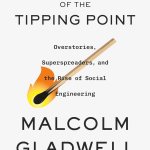Book Reviews: Oct. 25
Published 1:39 pm Wednesday, October 23, 2024


Countdown 1960: Chris Wallace with Mitch Weiss
The showdown between John F. Kennedy and Richard Nixon took presidential debates into the age of television.
JFK and Nixon debated four times but it is their first debate that is most historically known and cited.
Nixon was running a fever. He banged an injured knee getting out of a car. Instead of resting, he made a campaign appearance in the hours leading up to the debate. Nixon had a perpetual five o’clock shadow. He refused makeup. On air, he used a handkerchief to wipe away perspiration from his face. The image of a tired, sweaty Nixon beamed into tens of millions of American homes.
Trending
Kennedy arrived tanned and rested. He took a nap that afternoon. Though he had chronic health problems, he felt ready – energized but calm and composed – for the debate. He seemed in charge of the format. Tens of millions of Americans saw this youthful, healthy image of JFK radiate from their TV screens.
People who listened to the debate on the radio felt Nixon won. Television viewers overwhelmingly felt Kennedy won the debate – Kennedy felt the same way; so did Nixon.
Nixon lost more than the debate. He lost the lead in the polls and subsequently lost the election. The other three debates are mostly forgotten.
The debate is a climactic moment in “Countdown 1960: The Behind-The-Scenes Story of the 312 Days That Changed America’s Politics Forever” by television newsman Chris Wallace with Mitch Weiss but it’s not the only drama recounted in this 400-plus-page book.
As suggested in the title, the book opens 312 days prior to Election Day 1960. On Jan. 2, 1960, Massachusetts Sen. Kennedy announced his run seeking the Democratic nomination for the presidency. Unlike past candidates, he opted to run in each of the states then offering presidential primary elections. Prior to 1960, presidential nominees were usually selected by party leaders during the national conventions. Minnesota Sen. Hubert Humphrey also made an unsuccessful primary run to win the Democratic nomination. Kennedy was more concerned about stopping the possibility that other Democrats, especially Senate Majority Leader Lyndon B. Johnson, would make a late bid to be drafted for the nomination during the national Democrat Convention.
Nixon faced similar concerns of a last-minute nomination draft in the Republican Convention. Nixon was serving as the sitting two-term vice president of President Dwight D. Eisenhower in 1960. He ran a more quiet campaign and was considered the presumptive Republican nominee. Unless New York Gov. Nelson Rockefeller threw his hat into the ring as a last-minute candidate seeking the nomination at the GOP Convention.
Trending
Wallace and Weiss weave a narrative filled with high-stakes politics and drama. They take readers deep into each campaign’s camp, introducing various players, as well as a subplot of the rising Civil Rights Movement.
The Kennedy bleachers are filled with associates, family members such as his father Joe and his brother Bobby, celebrities such as Frank Sinatra, lovers such as Judith Campbell, gangsters, etc.
Nixon is mostly alone, the neglected vice president of the popular Eisenhower. His wife stands by his side but she does so quietly here. Nixon seems to be a man battling the world, with enemies pitted against him both near and far.
Wallace and Weiss also take a look at the election itself. Many historians speculate that Nixon may have won the 1960 presidential election. That Joe Kennedy through his money and connections as well as other Democratic operatives pushed the vote count to JFK’s favor in crucial locations. Wallace and Weiss follow this thread though, like others, the search is inconclusive.
“Countdown 1960” is the third book in a series by Wallace with Weiss. They also penned “Countdown 1945: The Extraordinary Story of the Atomic Bomb and the 116 Days that Changed the World” and “Countdown bin Laden: The Untold Story of the 247-Day Hunt to Bring the Mastermind of 9/11 to Justice.”
Like those books, “Countdown 1960” follows the countdown chapter format and works like a ticking clock of dramatic tension to tell a historic story.
Revenge of the Tipping Point: Malcolm Gladwell
Malcolm Gladwell made his name about 25 years ago with the book, “The Tipping Point.”
The idea is there is tipping point where the status quo abruptly shifts into a dramatic change. The book caught on and Gladwell has ever since made a fine career of examining ideas that have likely always affected humanity but how they apply to people living in the early 21st century.
His other bestsellers include “Blink,” “Outliers,” “What the Dog Saw,” “David and Goliath,” “Talking to Strangers” and “The Bomber Mafia.” He is a co-founder of the audio-content company Pushkin Industries that produces his popular “Revisionist History” podcast.
In “Revenge of the Tipping Point,” Gladwell looks at how intentional social engineering and unintentional circumstances create tipping points.
Miami may have more cases of Medicare fraud because the city’s environment encourages it.
An Ivy League school may have a deep and broad number of sports teams because athletics allows the school to control its enrollment demographics.
A community may think it has created a safe environment for its children by pushing academic and extracurricular excellence while incubating an epidemic of suicides among children overstressed by the need to achieve. … And how does that relate to a medical epidemic killing cheetah populations in zoos?
Gladwell pulls all of the strings to develop and explain his theories. Some of those theories have come into question in past books. For example, in “Outliers,” Gladwell expresses the famed or infamous 10,000 Hour Rule – the idea that anyone can achieve expertise if they have correctly practiced something for 10,000 hours. He used Bill Gates and The Beatles as examples. Critics argue that the 10,000 Hour Rule should help a person achieve some level of competence in a field but it does not guarantee brilliance or extraordinary success and riches.
As one New York Times review notes: “Gladwell’s towering success rests on the moment when the skeptic starts to think that maybe we’re wrong about everything and maybe, just maybe, this Gladwell guy is onto something.”







